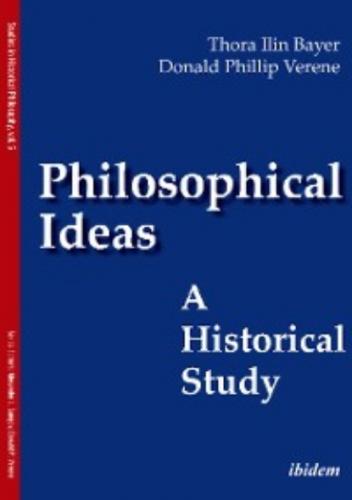From this association of the letter with formal logic and philosophical reasoning there follows a sixth interpretation, that returns to the number five. Five is an important number in mathematics, physiology, philosophy, and music. It is claimed that Plato holds the supreme first principles to be five: “Being, Identity, Divergence, and fourth and fifth besides these, Motion and Rest,” and that “Evidently someone anticipated Plato in comprehending this before he did, and for that reason dedicated to the god an ΕI as a demonstration and symbol of the number of all the elements” (391b–c). It adds that Plato, “in speaking about a single world, says that if there are others besides ours, and ours is not the only one, then there are five altogether and no more” (389a). Problematic for this interpretation is that five divisions, elements, types, forms, and so on, can be found in all areas of human thought, as well as threes, fours, sevens, and tens. We are given no proof that five is fundamental.
The seventh interpretation is different in kind from the others because it considers the role the ΕI may play in relation to the other two precepts. This interpretation holds that “the significance of the letter is neither a numeral nor a place in a series nor a conjunction nor any of the subordinate parts of speech.” Instead, “it is an address and salutation to the god, complete in itself, which by being spoken, brings him who utters it to thoughts of the god’s power.” The Ε stands in a dialogical relation to anyone who is to enter the temple. Thus, “the god addresses each one of us as we approach him here with the words ‘Know Thyself,’ as a form of welcome, which certainly is in no wise of less import than ‘Hail’; and we in turn reply to him ‘Thou art,’ as rendering unto him a form of address which is truthful, free from deception, and the only one befitting him only, the assertion of Being [ontos]” (392a).
“Thou art” as an assertion of Being makes the distinction between the ever-lasting permanence of the divine order and the contingent and ever-changing condition of the human. Wisdom is to know and acknowledge the difference. ΕΙ is placed beside Gnothi seauton to remind us of this difference. Thus “we ought, as we pay Him reverence, to greet Him and to address Him with the words, ‘Thou art’; or even, I vow, as did some of the men of old, ‘Thou art One’ [ei hen]” (393b). The two inscriptions express both an antithesis and an accord. Thus “the one is an utterance addressed in awe and reverence to the god as existent through all eternity, the other is a reminder to mortal man of his own nature and the weaknesses that beset him” (394c). In this account the other precept, Meden agan, is not mentioned. It is assumed under the other two as a way of acting toward the god and as a way of acting toward ourselves.
The significance of ΕΙ as “Thou art” is endorsed by Pico della Mirandola in his “Oration on the Dignity of Man” (1486), one of the key works of the Renaissance. Pico says that the Delphic inscriptions are one of the things that compelled him to the study of philosophy. He regards “Nothing overmuch” as the standard for moral philosophy and “Know thyself” as including the pursuit of the investigation of all nature as well as human nature. He concludes: “When we are finally lighted in this knowledge by natural philosophy, and nearest to God are uttering the theological greeting, ei, that is, ‘Thou art,’ we shall likewise in bliss be addressing the true Apollo on intimate terms.”3
These precepts may take us, as they did Pico, to the study of philosophy. They provide the briefest and most profound guide to philosophical thought. We can say with confidence that all speculative philosophy—that which considers the True to be the whole—is no more than the expansion of the ideas condensed in these three archaic inscriptions. We are taken back to them over and over.
Конец ознакомительного фрагмента.
Текст предоставлен ООО «ЛитРес».
Прочитайте эту книгу целиком, купив полную легальную версию на ЛитРес.
Безопасно оплатить книгу можно банковской картой Visa, MasterCard, Maestro, со счета мобильного телефона, с платежного терминала, в салоне МТС или Связной, через PayPal, WebMoney, Яндекс.Деньги, QIWI Кошелек, бонусными картами или другим удобным Вам способом.
